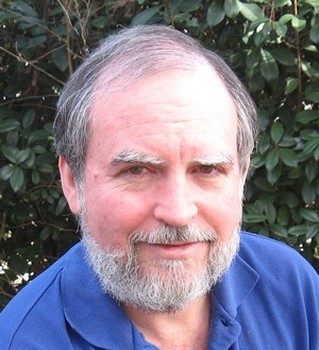
R. L. Copple is a science fiction and fantasy writer. He's written six novels and numerous short stories. While some say he lives in his own fantasy world, in reality he resides in the Texas Hill Country with his wife of 30 years and remaining son of three kids.
You can visit Rick's website, read his blog, friend him on Facebook, and follow him on Twitter. And of course, you can buy his books on Amazon. Now, read on to learn more!
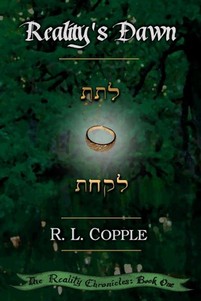
Non-fiction speaks directly about truth. Fiction allows you to experience truth. Speculative fiction allows one to experience that truth in an other-worldly setting that adds in a fresh perspective to that truth. Often, what someone will automatically block from a non-fiction source, they will experience and consider from a fictional story. Put that into another world, one can often communicate perspectives of truth people hadn't noticed before simply because the newness of the world breaks down preconceived ideas of reality.
I used that in the Reality Chronicles series explicitly to reveal truths about God's reality. Thus why "reality" figures so much in the titles. The first function of fiction is to entertain, because that's why people read fiction and if you don't do that, it doesn't matter what else you do communicate, because the audience for the book will be very limited if you're boring or keep kicking people out of the story. While I write books that are not focused so much on communicating a message, this series does. The trick, of course, is to do so without coming across as "preachy."
The Reality Chronicles are marketed as YA. Did you have a young adult in mind when you wrote them? Do you expect that grownups will read them, too?
Pretty much intended to be YA. The short story that started the ball rolling for this series begins with a 13 year-old boy going into a mystical steam house for his coming of age experience. But I've felt the cool aspect of YA is that if you write it right, adults will like it too. Especially those adults with short attention spans and don't want paragraphs of description and internal dialog--just get on with the story! One of the advantages of doing speculative fiction is that I didn't have to abide fully by current teen slang or issues.
There are inherent growing up issues in any YA, but issues that might appeal to teens but bore adults aren't necessarily part of an alternate world and reality. So it left me with more freedom to define how teens in that world talked and acted, because that world evolved differently from our own. So it makes it easier to keep it relevant for adults as well as teens.
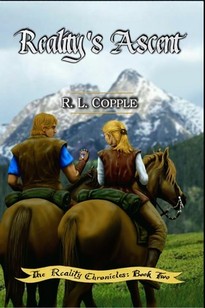
It has been a while since I wrote any poems, but I think there is a difference in how you attack it, while at the same time, the two compliment each other. Poetry gives one good training in writing concisely, engagingly, and beautifully. Not just in words, but in thoughts. Meanwhile, working on novels, short stories, and flash fiction has developed the concept of story-telling, which even good poetry accomplishes.
The main difference between the two is poetry is getting that moment of inspiration. I wrote a poem one time in a few minutes that flowed, and ended up winning a honorable mention in a contest. Then when you write it, or even sometimes as you are writing it, you're fretting over if that is the best word, and examining every nook and cranny of how it is put together, even they rhythm of the words.
With a novel, while you do some of that, the bulk of the words you don't have that kind of time to examine them so closely, unless you're willing to take years to write it (and then, you're not likely to make a living off writing in that case). Sometimes with a novel, you force yourself to write, inspiration or not. You'll look for spots where you can be more poetic, or beautiful, but you're not so free to focus on that aspect all the time. Inspiration comes when it comes. However, if one does enough poetry, that will come out in their writing as well without them needing to consciously think about it.
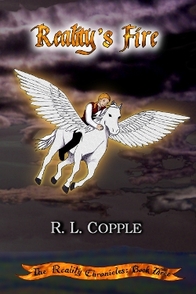
I used to write my own comics as a teen. Three of the later ones are on my website. http://www.rlcopple.com/published.php?ic=Comics_Page
Even though my artwork back then was okay, nothing great, I never developed it. I would be interested in doing a graphic novel, but I doubt I have the skills to do the art and make it look professional. I would have to collaborate with someone. Write the story and they do the art.
But I would probably do something new. As a matter of fact, I may have the opportunity to write the back story, narration and dialog for a computer game in the near future. That has some similarities with graphic novels, but in a more interactive mode.
An Amazon reviewer of The Reality Chronicles said that reading Reality’s Fire was like “getting a theology lesson.” Do you weave in the Christian worldview as you go along, or does it actively determine the shape of the plot in your books?
From the first short story that started this series, and on, there was a particular theme and theological framework I was working in. While some of the allegory, analogies, and themes are not so hidden, the main one isn't so overt. It is the focus in the first story of Reality's Dawn, and the last scenes with the ring in Hades in Reality's Fire. In short, The Last Judgment and Paradise. But one would have to be aware of some early Christian writings to catch those themes, though it is a little more obvious in the final book, Reality's Fire.
That said, the theology pops out more in Reality's Fire, not only because it is the grand climax of the series but because the plot and characters demand it come out to be natural. Of course, I don't know exactly what the reviewer might be specifically referring to, but it could be something dealing with the differences between Paradise, Hades, and Hell.
That said, even if I'm not specifically trying to make a theological/religious statement, I think my Christian worldview will tend to come out, even if subtly. For instance, my Mind Game and Hero Game space opera stories are not religious at all, but the moral and ethical framework of the world and the main character operate with a Christian worldview.
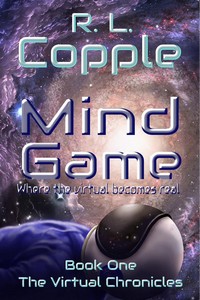
For the author, it gives him or her the assistance in publishing a book without the downsides of traditional publishers. Many have grown weary of the struggle with the long wait times and potential pitfalls, and reluctance to take anything that is a niche market book. Small publishers can move a lot faster when they need to. What can take one or two years from acceptance to publishing a book for traditional publishers, can be done in months at a small press when the schedule allows it. For the author who isn't ready to tackle self-publishing themselves, wants help with editing and covers, and formatting/layout, it's the ideal set up.
For the reading public, it means books are getting published that previously would have wasted away in a slush pile somewhere. Books with a smaller audience can get published because small presses don't have to sell that many to make a profit. People who lamented they couldn't find any good Christian Science Fiction now can. It is offering up a wider selection of reading choices for the public that previously were scarce.
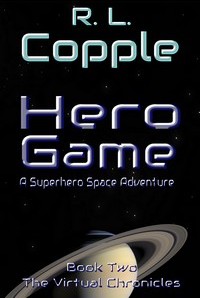
One bit of advice often given for writers is just to write. That is good advice. A writer writes, and sometimes we allow other activities to eat into that time too much. For me, however, it was the opposite. I spent every free moment working on writing tasks. If I could go back, I would tell myself to pace myself more. Don't neglect other aspects of your life that equally deserve attention. I've had to take some time off of writing in the last few months to catch up with items I neglected during the six year I spent totally focused on writing.
So yes, write. But keep the big picture in mind. You'll be doing this for years before you "hit it big," if that happens, so pace yourself and don't neglect the rest of your life and relationships in the process.
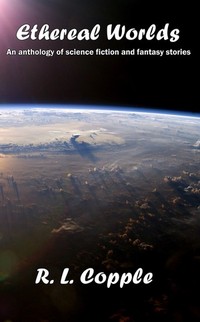
Works in progress include a third book in the Virtual Chronicles series in the plotting stage. A spin-off series from the Reality Chronicles world involving dragons; two books have been written for that one so far. It will include at least five when done. And a new space opera series in episode format called Underground. The first five installments of that one have been written. So plenty in the hopper yet to come.
Check out my published work at my website: http://www.rlcopple.com
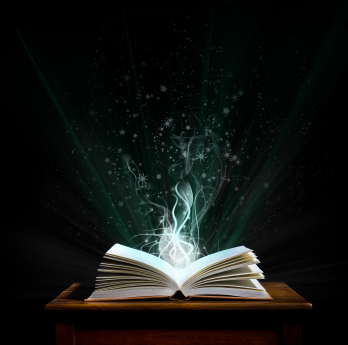
 RSS Feed
RSS Feed